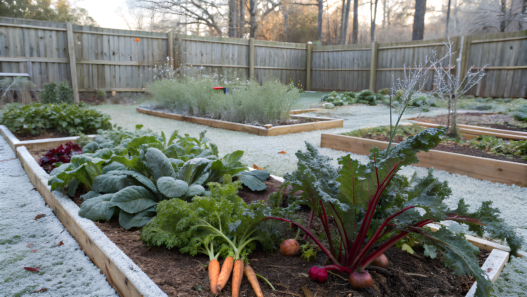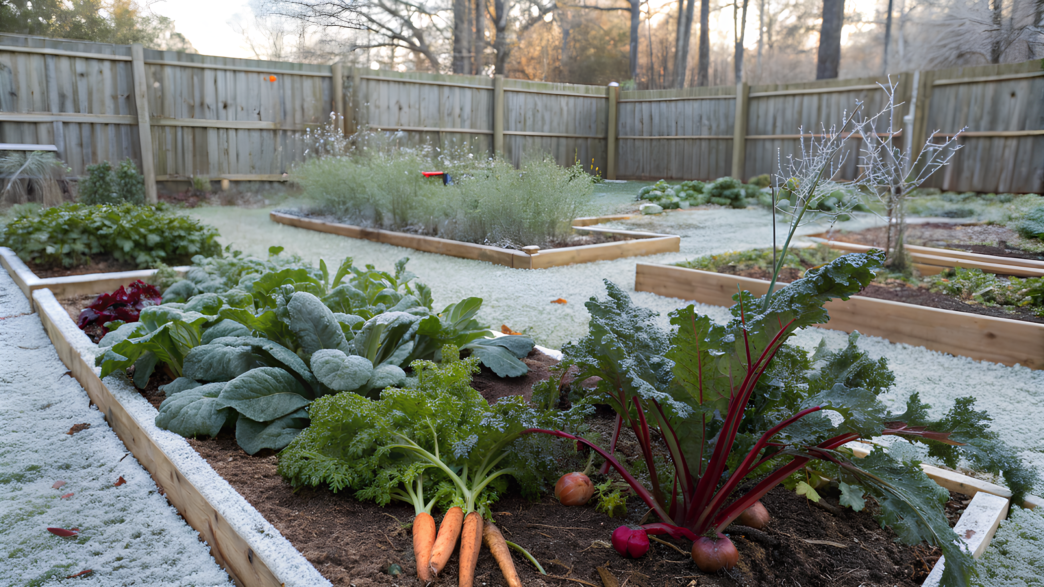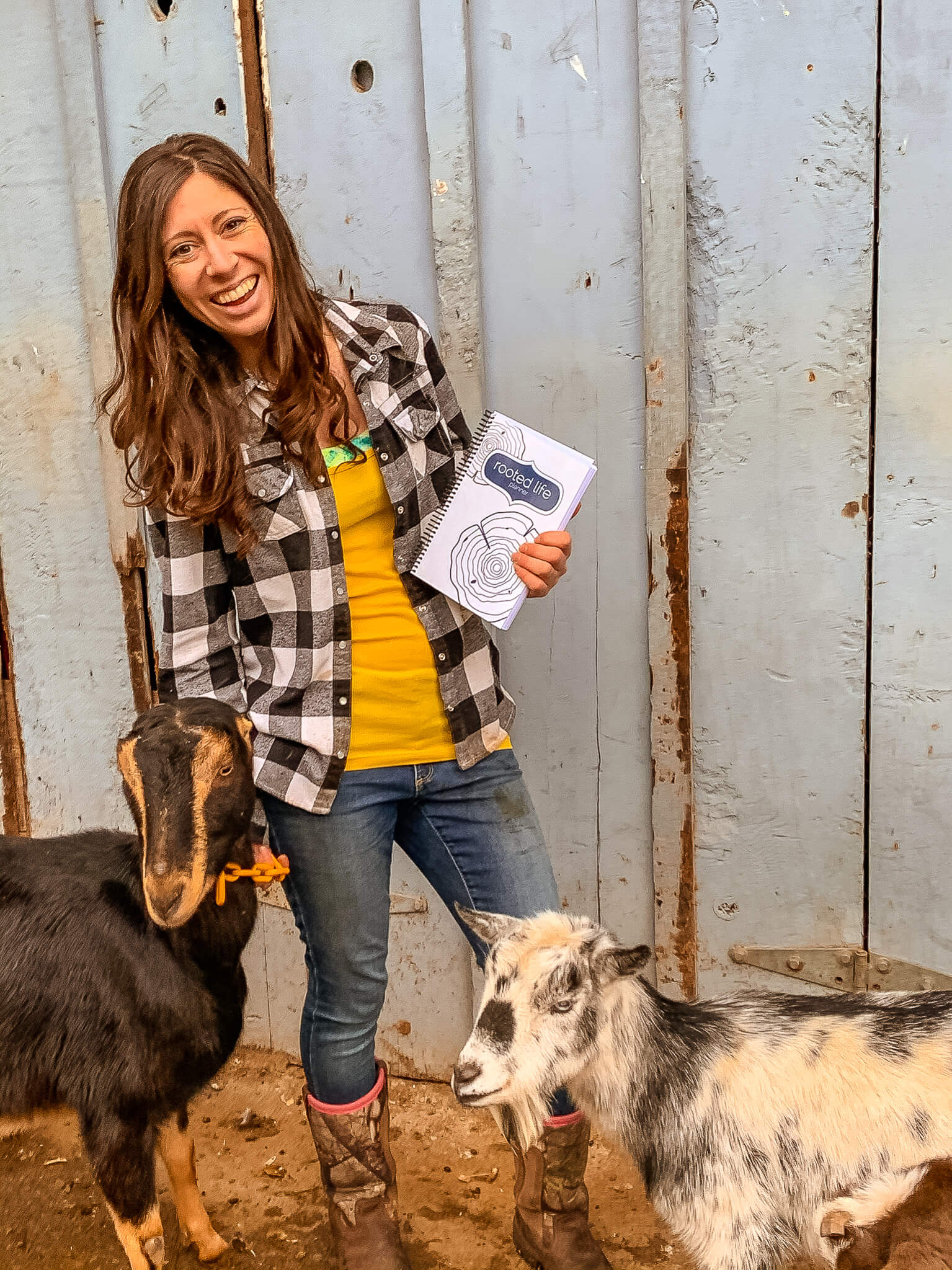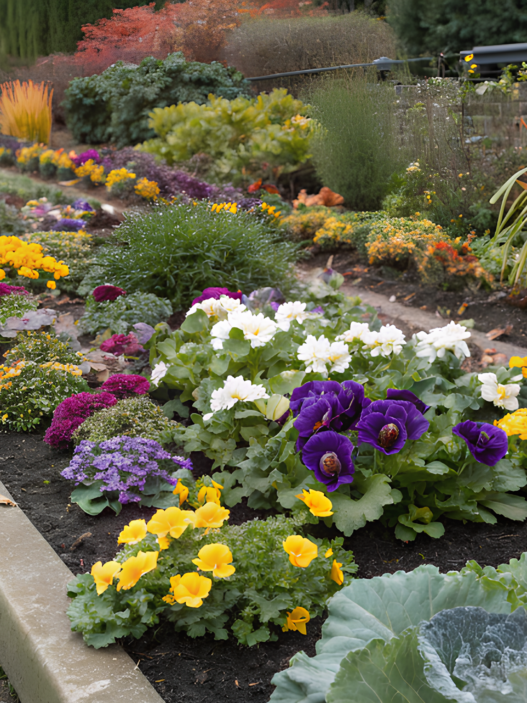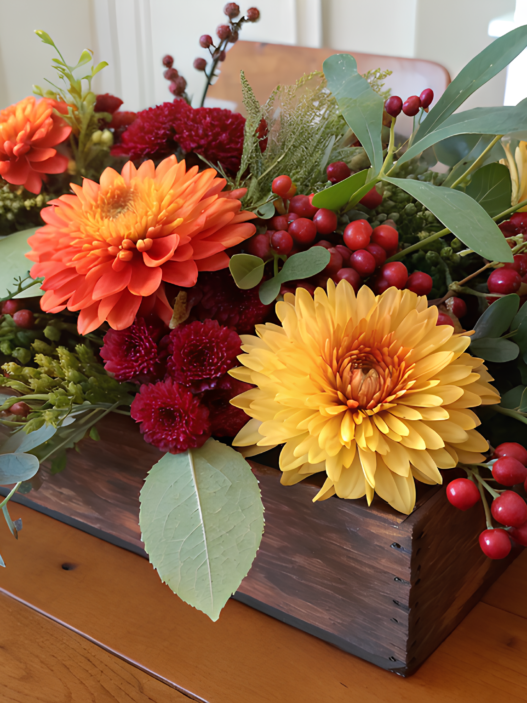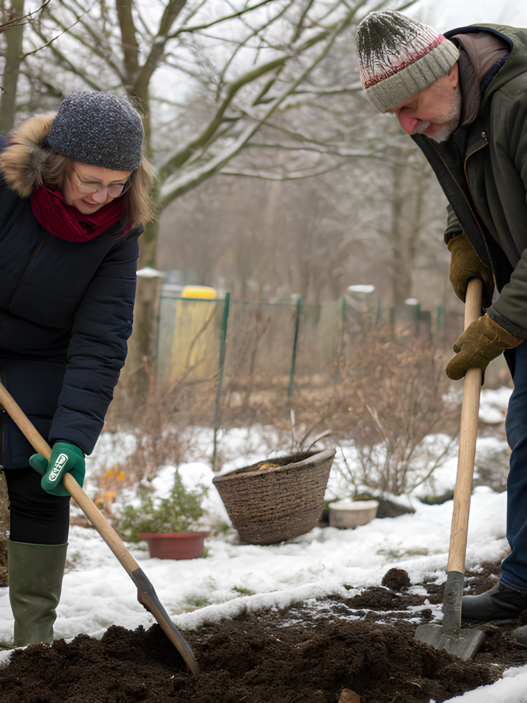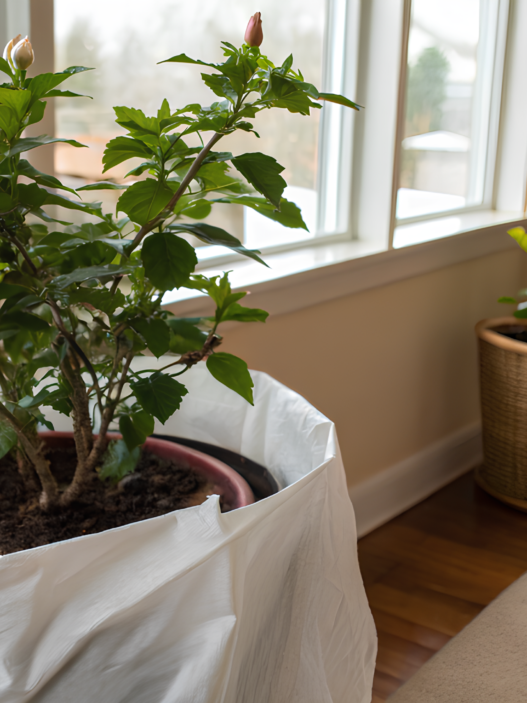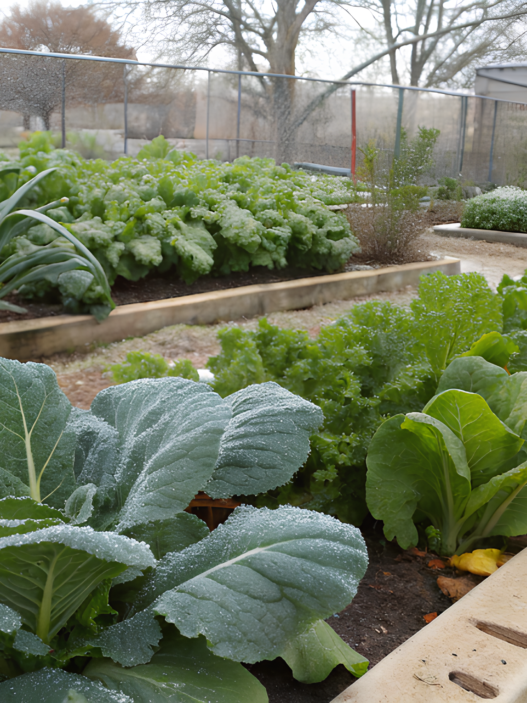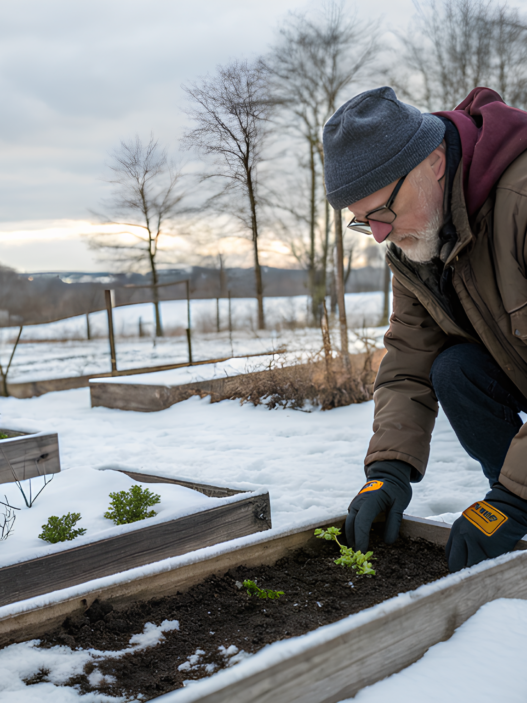As winter approaches, many gardeners say goodbye to their gardens, thinking the season is over. But in Georgia’s mild winter climate, that’s not the case. It’s here that if you know what to plant and how to care for your plants, you can harvest fresh Georgia winter vegetables all season long. In this article, we’ll look at the best winter vegetables to grow in Georgia, give tips for maximizing your harvest, and share tricks we’ve learned over the years of winter gardening.
Winter vegetables in Georgia
Like some other states, Georgia’s climate gives gardeners a big advantage. The winters are mild, so you can grow a variety of cold-resistant vegetables. And they, by the way, add a lot of variety to your winter menu. Vegetables like cabbage, carrots, and radishes love the cool weather, and as we already know, even taste better in lower temperatures. Plus, winter gardening allows you to use every part of your garden all year round. Sure, it’s not so bad to pick fresh greens from your garden in the winter.
Preparing the Georgia garden for winter vegetables

And as always, we’ll begin garden preparation by removing the remains of summer crops and adding a layer of compost to enrich the soil with organic matter. Healthy soil is important all year round, but especially in winter when plants need more support. Compost provides nutrients and shelters it, helping to regulate soil temperature.
Even in Georgia, there are sometimes drastic temperature swings, so it is advisable to use mulch as a protective layer.
Tip. Add mulch after the first frost for maximum protection
Winter vegetables to grow in Georgia
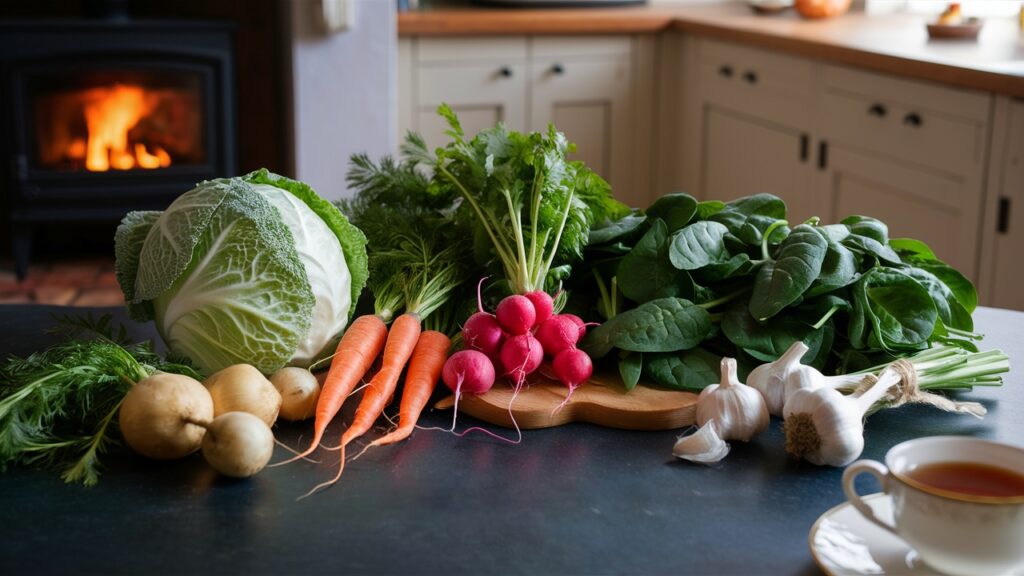
1. Kale
Kale is undoubtedly one of the best winter vegetables to grow in georgia. This cold-tolerant green vegetable gets even sweeter as the temperature drops, so it’s simply essential for winter salads and soups. Plant it in late fall and you won’t regret it, you’ll enjoy the harvest all winter long.
Planting Tip. Place kale plants 30-45 cm apart and use a cover crop if hard frosts are expected. Even with minimal care, you will be able to harvest throughout the winter season.
2. Carrots
Carrots love cool air and tolerate frosty nights very well. Grown in winter often have a richer flavor, almost like natural sweets. We plant carrots in deep, well-drained soil in October, allowing us to harvest them from mid-winter through early spring.
Fact. The cold stimulates carrots to convert starches to sugars, which makes them more flavorful. Carrot varieties such as ‘Danvers’ and ‘Nantes’, do well in Georgia’s winter climate.
3. Radishes
Radishes are one of the easiest winter vegetables to grow in Georgia. It has a short cycle, so it’s perfect for beginning winter gardeners. It can be harvested in as little as 4-6 weeks, so it’s perfect for use in between other slower growing crops.
Recommended varieties. We’ve had good results with the ‘Cherry Belle’ and ‘French Breakfast’ varieties. They are crisp, bright, juicy and great for winter salads.
4. Spinach
Spinach is another cold-tolerant vegetable that feels great in winter. Loved by almost everyone, it’s a treasure trove of vitamins and minerals, making it essential for winter stews, sautés and salads.
Growing Tip. Spinach prefers semi-shade in Georgia’s winter sun, so try planting it next to taller winter crops for natural shade. By the way, the ‘Bloomsdale ‘ variety is particularly winter-hardy.
5. Garlic
While garlic may not be the first thing that comes to mind, it is one of the most beneficial crops to plant in late fall. Plant garlic in October or November, and it will be ready to harvest in the spring. The trick is that the longer the cold period, the brighter the flavor will be.
Tip. Choose mild garlic varieties that are better suited to Georgia’s climate. They are less frost-tolerant than hard varieties, but will produce a good crop in the mild winters we are accustomed to.
Tips for protecting winter vegetables in Georgia

Winter in Georgia, as we mentioned, is mostly mild, but there can be occasional frosts. Here’s how to help your plants:
- Use covers or frost cloth. These things are just a necessity for those rare nights when the temperature drops hard. Coverings protect plants from frost and keep them in good condition.
- Do not neglect mulching. Adding a 5-7 cm layer of mulch around the plants helps protect the roots and retains moisture. Use straw, wood chips or shredded leaves as a natural insulator.
Reduce watering. Vegetables are known to need less water in the winter, so adjust your watering schedule. Excess moisture can cause roots to rot in the colder months.
Recommended tools and products for winter gardening
For winter gardening, you may need specialty tools. Here are a few items from Amazon that we recommend:
- Covers. Lightweight covers such as Agfabric Plant Covers, ideal for insulating plants without the risk of overheating.
- Durable Garden Gloves. Durable gloves such as Handlandy Waterproof Garden Gloves are great for winter gardening.
- Organic mulch and compost. Organic mixtures such as Miracle-Gro Performance Organics All Purpose help enrich the soil.
Why grow winter vegetables in Georgia
One always appreciates the opportunity to be close to nature, and growing winter vegetables Georgia gives you that opportunity even during the winter months. A nice bonus is the opportunity to replenish your table with fresh produce grown with your own hands. Imagine the pleasure of pulling fresh carrots out of the ground on a cold January day, or adding just-picked spinach to a hot winter stew. Winter vegetables to grow in Georgia bring joy, extraordinary flavor, and will greatly diversify your menu throughout the season.
I think winter gardening is right up your alley.
Put on your gloves and let’s labor together!
